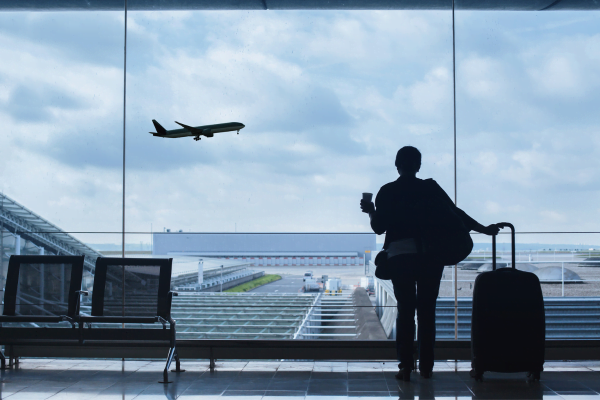Traveling with Asthma. “As a mother of a young child with asthma, traveling can be both thrilling and nerve-wracking,” says Andrea, a 28-year-old mom. “I vividly recall planning our first family trip; my mind was a whirlwind of ‘what-ifs.’ What if my child had an asthma attack during the flight? What if the hotel room wasn’t up to par in cleanliness? But with thorough planning and preparation, our journey turned out to be smooth and delightful.”
Andrea continues, “Before we set off on our trip, we consulted our child’s doctor. We followed her advice on packing the necessary medications and even brought an extra inhaler, just to be safe. We also contacted the airline in advance to arrange seating closer to the front of the plane for quick exits in case of an emergency.
To create a clean and asthma-friendly environment, we booked a hotel that offered allergen-free rooms. These rooms are specifically designed to minimize dust mites and other allergens that could trigger asthma symptoms.
Throughout our trip, we closely monitored our child’s asthma symptoms and avoided activities that could act as triggers, such as visiting smoke-filled areas or crowded places. We also made it a point to find local pharmacies at our destination, in case medication refills were needed.
With these precautions, we were able to enjoy our family vacation with ease and peace of mind.”
Traveling opens up opportunities to explore new destinations, immerse in different cultures, and create lasting memories. However, for those with asthma, a successful trip demands mindful planning and precautions. Here are some valuable tips for traveling safely with asthma.
Consult Your Healthcare Provider
Before starting your travel adventure, it’s crucial to have a consultation with your healthcare provider. Discuss your travel itinerary, destination, and any concerns you may have. Your doctor can provide tailored advice, review your asthma management plan, and adjust your medications as necessary.
Pack Medications and Essentials
Keep your asthma medications in your carry-on bag for easy access during travel. Ensure you have enough inhalers, nebulizers, spacers, and other prescribed medicines. Additionally, carry a copy of your asthma action plan, detailing steps to take during an asthma attack, and keep it with your medications.
Research Your Destination
When planning your trip, do thorough research on your destination. This includes understanding the local climate, air quality, pollen levels, and other potential asthma triggers. Being well-informed will help you prepare adequately and make safe decisions about your activities.
Choose Asthma-Friendly Accommodations
Select accommodations that prioritize clean indoor air and offer non-smoking rooms. If you’re staying at a hotel, request a room that is free from allergens and irritants. Look for places that provide allergy-friendly bedding and air filtration systems for a more comfortable stay.
Be Mindful of Air Travel
Air travel can be challenging for individuals with asthma due to cabin pressure changes and recycled air. Here are some precautions to ensure a comfortable flight:
● Inform the airline about your asthma condition when booking your ticket. Request a preferred seat that suits your needs, such as one closer to the front of the cabin or with more legroom.
● Consider carrying a portable air purifier for use during the flight. This can filter surrounding air and reduce exposure to airborne triggers.
● Stay well-hydrated throughout the flight. Drinking water keeps your airways moist and eases breathing. Avoid excessive caffeine and alcohol, which can cause dehydration and potentially worsen asthma symptoms.
Carry a Written Asthma Action Plan
Having a written asthma action plan is vital, especially when traveling to new places. Ensure the plan includes detailed instructions on managing asthma, recognizing symptoms, and using your medication. Share this plan with your travel companions and keep a digital copy on your phone for quick access.
Stay Prepared for Allergens
Different environments can expose you to new allergens and triggers. To minimize the risk of an asthma attack, consider these precautions:
● Carry a mask to protect yourself from dust, pollen, and airborne irritants.
● If you have other allergies in addition to asthma, pack the necessary allergy medications.
Pace Yourself and Listen to Your Body
Traveling is exciting and may tempt you to overfill your itinerary. However, it’s essential to pace yourself and focus on your well-being. Listen to your body, rest when necessary, and avoid overexertion to prevent potential asthma flare-ups.
